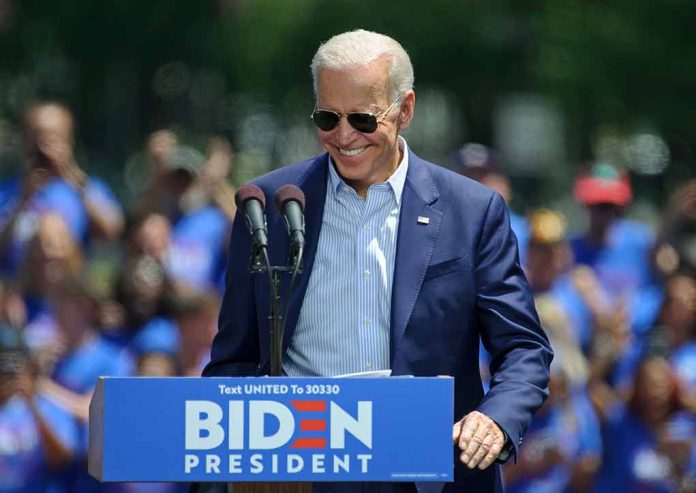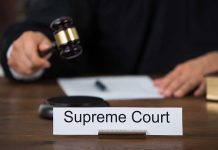
President Biden’s decision to pardon his son Hunter has sparked a firestorm of controversy, contradicting his previous promises and raising questions about the integrity of the justice system.
At a Glance
- President Biden issued a pardon for his son Hunter, covering offenses from 2014 to 2024.
- Hunter faced federal gun charges and tax evasion convictions.
- Biden previously stated multiple times he would not pardon his son.
- The decision has drawn criticism from both Republicans and Democrats.
- Biden justified the pardon, claiming Hunter was “singled out” and faced a “miscarriage of justice.”
A Controversial Reversal
In a stunning turn of events, President Joe Biden has pardoned his son, Hunter Biden, despite previously vowing not to intervene in his legal proceedings. The pardon, which covers offenses from January 1, 2014, to December 1, 2024, has ignited a fierce debate about the abuse of presidential power and the appearance of favoritism in the justice system.
Hunter Biden had been facing sentencing for two criminal cases, including tax charges and illegal possession of a firearm as a drug user. The pardon comes after a proposed plea deal for Hunter unraveled under judicial scrutiny, leading to heightened legal and political pressure on the Biden family.
Biden said on record he would NOT pardon Hunter Biden.
He did. pic.twitter.com/rnCXXvnwny— Natalie F Danelishen (@Chesschick01) December 2, 2024
Biden’s Justification and Public Reaction
President Biden defended his decision, describing his son’s legal troubles as a “miscarriage of justice” and claiming Hunter had been “singled out” for political reasons. This comes after the president had previously stated, “I said I’d abide by the jury decision, and I will do that. And I will not pardon him,” directly contradicting his previous stance on the matter.
The decision has drawn sharp criticism from both sides of the political aisle. Republicans have accused the President of abusing his power and engaging in a cover-up, while some Democrats have expressed disappointment in Biden’s reversal. Representative Greg Stanton, a Democrat, joined the chorus of critics, highlighting the bipartisan nature of the backlash.
Political Implications and Future Consequences
The timing of the pardon, following a family gathering for Thanksgiving in Nantucket, has raised eyebrows and fueled speculation about the motivations behind the decision. Critics argue that the move undermines the rule of law and sets a dangerous precedent for future administrations.
President-elect Donald Trump wasted no time in capitalizing on the controversy, linking the pardon to the ongoing debate surrounding the January 6th Capitol riot. Trump’s comments underscore the potential political fallout for Biden as he navigates the final year of his presidency.
Hunter’s Response and Future Outlook
In the wake of the pardon, Hunter Biden expressed gratitude and committed to helping others struggling with addiction. His statement, released through his legal team, acknowledged past mistakes while criticizing the political exploitation of his personal struggles.
“I have admitted and taken responsibility for my mistakes during the darkest days of my addiction — mistakes that have been exploited to publicly humiliate and shame me and my family for political sport.” – Hunter Biden
As the dust settles on this controversial decision, questions remain about the long-term implications for both the Biden presidency and the broader political landscape. The pardon of Hunter Biden may well become a defining issue for the Democratic party, potentially reshaping the dynamics of American politics for years to come.
Sources:
- Biden gives son Hunter ‘unconditional’ pardon
- Joe Biden pardons son Hunter in shocking reversal, claiming he was ‘unfairly prosecuted’ as lame-duck prez winds down term
- 2 times Biden said he would not pardon son Hunter Biden















